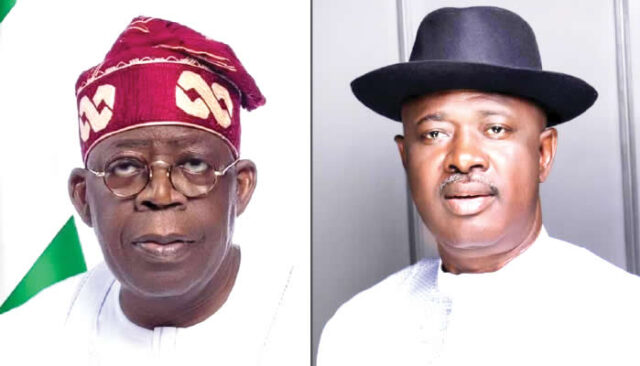Energy has become unaffordable to average Nigerians who now seek other unhealthy means to cope with life exigencies, even as the government insists on subsidy removal, writes DARE OLAWIN
Since President Bola Tinubu’s administration came on board in May 2023, the cost of energy has been on the rise, leaving many vulnerable Nigerians in energy poverty.
During his inauguration, the first assignment performed by the president was the removal of the petrol subsidy, which saw the fuel price skyrocketing from barely N200 to about N600. The president appeared to have forgotten his promise during his campaign in Abeokuta, the Ogun State capital, that he would bring down the cost of petrol, even if his predecessor took it to N500/litre.
Tinubu’s subsidy removal was followed by the devaluation of the Nigeria by the Federal Government. The floating of the naira brought about more hardships, especially as the dollar rate affected the cost of imported petroleum products and other goods.
To reduce the hardship, the Federal Government directed the Nigerian National Petroleum Company Limited to sell petrol to the masses at half the landing cost. This means the NNPC was selling a litre of premium motor spirit at N600 having imported it at N1,200/litre.
Recently, the NNPC, which has for months denied subsidy payment, lamented over mounting debts. The company said it could no longer continue to sell below the cost price. Therefore, clandestinely hiked the price of petrol from N600 to rates around 855 and N1,000, depending on the location.
Even with the Dangote refinery, the price of PMS stood above N1,000/litre in some locations, especially in filling stations owned by independent marketers.
Unexpectedly, the price of petrol rose amid the harsh economic situation. The government said it has fully deregulated the sector and would no longer fix the price. The market forces, it was said, would now determine the price.
Aside from the high rate of fuel, Nigerians have continued to experience serious petrol scarcity. In 2024 alone, the country experienced almost 90 days of fuel queues in filling stations. During the Easter period and in early May, commercial activities were almost grounded due to fuel shortages. Something similar nearly occurred in June, but it did not last. From July to September, Nigerians faced excruciating pains searching for petrol and resorted to buying at a premium from black marketers.
With petrol at over N1,000 a litre, the cost of transportation has gone higher, with a ripple effect on the items in the market. Nigerians who could not do without going to fend for themselves now spend more of their earnings on transportation.
To reduce the effect of this on their finances, individuals are devising different means. Some have resorted to trekking a long distance to reduce the cost of transportation. Instead of going to motor parks, many now stand by the road to look for cheaper vehicles.
During this period, some private car owners have turned to commercial drivers in an attempt to recoup some percentage of the amount spent on fuel daily. When going out, they carry passengers along the road. This they said reduces the effect of the price hike.
“This is the only way to recover a little of what we spend on fuel. I carry passengers when going to work and when returning home,” a civil servant told transport union officials as he stopped to pick up passengers at Seven-Up bus stop in Lagos.
It was learnt that some car owners have parked their vehicles to embrace public transportation for they could not cope with the new fuel prices.







